Register for free and continue reading
Join our growing army of changemakers and get unlimited access to our premium content
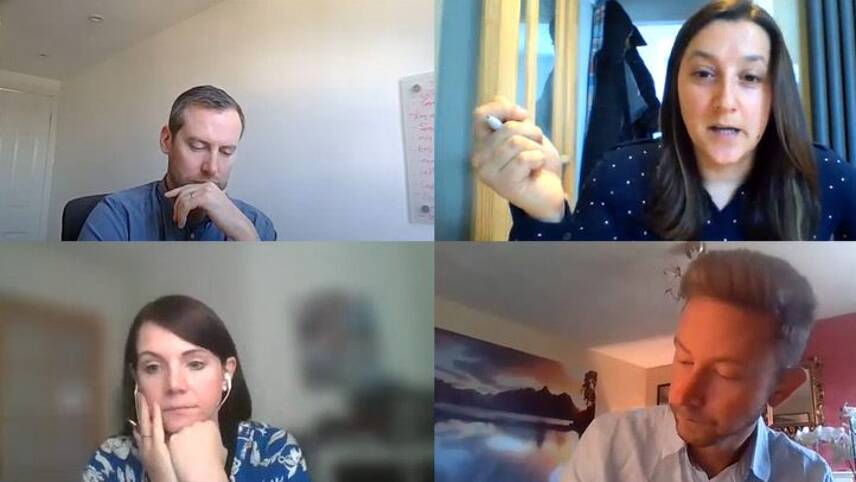
(Top-left to bottom-right): Centrica Business Solutions' Louis Burford; Decathlon's Emma Woolley; Centrica's Andrea Barrett; and edie's Luke Nicholls
That was one of the key discussion points at edie’s latest roundtable discussion, held virtually in association with Centrica Business Solutions, chaired by edie’s content director Luke Nicholls and attended by sustainability leaders from a wide range of sectors.
The roundtable – edie’s first of the calendar year – was held in acknowledgement that there are now just 10 years left to deliver against the SDG agenda in its entirety; and that despite 193 countries, more than 10,000 companies and investors with more than $4trn in assets pledging to support the SDGs, research has repeatedly concluded that the majority of actors and, indeed, the world as a whole, are off-track.
During the 90-minute session, representatives from businesses including Costa Coffee, Centrica and Nuffield Health outlined some of the key reasons for this gap between ambition and action – from communications challenges, to a lack of metrics for tracking certain social indicators, to insufficient investment from both central government and the private sector. They also outlined potential opportunities for collaboration and efficiency in areas such as shared supply chains, customer engagement and industry groups.
But one of the most heated parts of the debate came when participants were asked whether the snowballing net-zero conversation had become a higher priority than work on the SDGs.
Year of change
Since the Intergovernmental Panel on Climate Change (IPCC) published its landmark report on global warming in October 2018 – nations representing around half of global GDP have either enshrined net-zero targets in law or set net-zero policy positions.
This sizeable shift in green policy, Guidehouse’s energy, sustainability and infrastructure director Michael Pitta said, has seen many corporates “push the panic button” on emissions out of “shared nervousness” that stricter reporting requirements will soon be mandated.
“A lot of our larger customers are approaching this as a risk-mitigation exercise and wanting to be ahead of the curve as early adopters,” Pitta said, arguing that long-term thinking on one issue does not, in these early days, equate to joined-up action.
BNP Paribas Real Estate’s sustainability director Nick Hillard agreed, stating that the UK’s net-zero target has “really invoked a sense of urgency, especially in our landlord clients and major corporate occupiers”. These actors anecdotally told of how they found it easier to relate to a domestic target rather than an international framework.
This domestic or global debate, compounded by the fact that net-zero is ultimately one concept while the SDGs consist of 17 goals and 169 sub-targets, also makes net-zero more accessible to consumers Refresco Beverages’ UK sustainability manager Benjamin Jefferey argued. He told of how he does “not need to generate” conversations on carbon, as these are already started organically by consumers.
Costain’s group carbon manager Lara Young echoed this concern but argued that, instead of pitting the SDGs and net-zero against each other, sustainability professionals should frame climate action as a “gateway” to broader SDG engagement. SDG 13 is, after all, Climate Action, and the whole reason for the framework is that all goals are intrinsically linked.
“If we are riding the net-zero wave… why not communicate that net-zero is a big priority area of the SDGs, but remind people that there are other elements to this,” Young summarised.
Young’s points chime in with the growing momentum for a “just” net-zero transition, in which the burdens and benefits of decarbonisation are ultimately shared and balanced against impacts in areas such as biodiversity, waste and local economies and communities. It is early days, but the concept is starting to get captured at a political level through the Green New Deal movement.
Hillard agreed, asking: “If not now, when? The interest in our area over the past 12 months has really focused minds. We’ve got the opportunity now to really make a difference; there is a sense of urgency I haven’t seen previously.”
Successful translation
Several of the speakers went on to tell of how they were having difficulty “translating” the SDGs into a language which could be understood by stakeholders from front-line employees, to consumers, to executives with no prior sustainability training. And if the language was not the problem, getting a front-line manufacturing worker to understand how he could, for example, help to halve global food waste, certainly was.
The general agreement from those who claimed to have overcome this issue already was clear: don’t actually mention the SDGs – at least, in the first instance.
Investec’s carbon manager Jay Ham explained that “decentralising sustainability and empowering everybody” is, ultimately, both how the business achieved carbon neutrality and is now seeking to deliver broader local action on the Global Goals.
The finance firm has two business-wide volunteer networks – ‘team green’ for environmental sustainability and ‘social champions’ for social sustainability and ethics. Members of both networks receive regular meetings and training, and are given the chance to become “ambassadors” on the topic they are most passionate about.
Building on the success of these networks, Investec’s sustainability team will now ask departments for information on what priorities and processes they have daily and why, in a bid to identify areas for alignment activities which can be “owned”. In this way, Ham said, SDG alignment will filter down into areas such as procurement and employee benefits, while staff will feel they are being supported and upskilled rather than burdened.
“We haven’t really been pushing the SDG framework directly, but we do provide training on how their work links,” Ham said. “We don’t want to confuse the messaging.”
Centrica’s director of responsible business Andrea Barret said she had taken a similar approach, “filtering” SDG-aligned actions “lightly” into daily remits rather than expecting all staff to self-teach around the entire framework. Staff are broadly more familiar with the company’s own sustainability strategy than the SDGs, she added.
Decathlon’s energy and environment manager Emma Woolley said the situation at her firm was similar, in that there is a “stronger internal language” around sustainability now than in previous years.
And, as with Ham, she explained that while staff used to respond well to having the “credibility” of an UN-approved, top-down strategy, they are now keen to “work off their own back”. As such, Woolley’s team allows employees to pitch new projects and will support them with implementation, so long as they are aligned with the SDGs and the company strategy.
Choose wisely
Another key piece of advice for driving engagement that was repeatedly mentioned was homing in on certain SDGs rather than trying to act on – and communicate – the entire agenda.
Promisingly, most businesses seem to already be at this stage. A recent survey of 250 large corporates by the World Business Council for Sustainable Development found that 78% have already taken action to identify “priority” goals.
Typically, participants concluded, this identification involves assessing which goals align best with business materiality assessments, rather than the demands of stakeholders without sustainability expertise.
To that end, the survey found, the most commonly prioritised SDGs are 13, Climate Action; 12, Responsible Production and Consumption; and 8, Decent Work and Economic Growth.
Tarkett’s technical and sustainability director Ross Dight emphasised that while some stakeholders – particularly consumers – may ask why you are not acting on or reporting against all SDGs, evidence of their interconnected nature is easy to come by, both from the UN and from reputable NGOs, consultancies and think-tanks.
“The way we look at things is that by doing certain parts of the SDGs well, positive impact tends to follow on into some of the others,” he summarised.
Sarah George
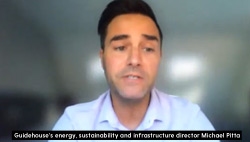
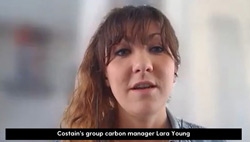
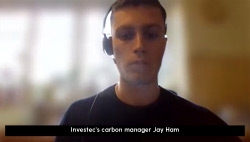
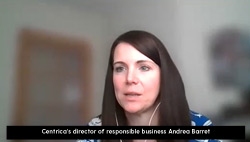


Please login or Register to leave a comment.